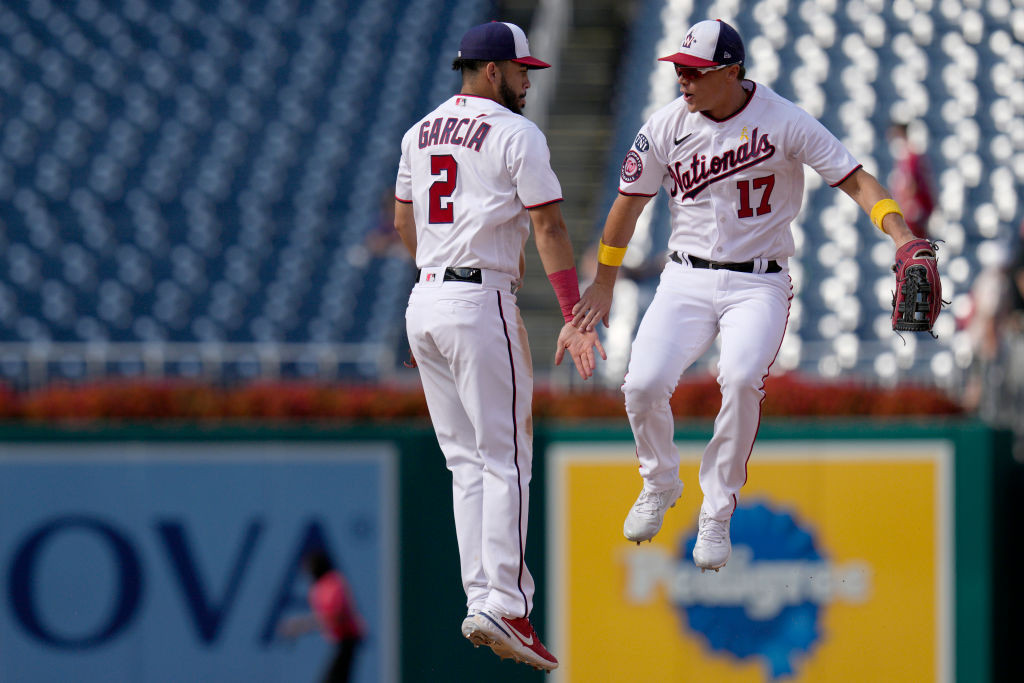Baseball’s second significant roster deadline of the week comes this evening, when teams are required to tender contracts to all players on the 40-man roster who aren’t already signed for the upcoming season.
Tendering a contract doesn’t mean actually agreeing to a 2024 salary. That process can still take place over the next two months, with any cases that aren’t settled ultimately heading to arbitration. This first step merely involves a team indicating its intention to sign a player for another season.
And the vast majority of these cases are cut-and-dried. Almost everyone involved in this process will have his contract tendered by the end of the day. Anyone who doesn’t get tendered … well, that’s the real newsworthy event.
Dozens of players across the sport get “non-tendered” every year on this date. Most are arbitration-eligible and due to earn more money via standard raises than the club is willing to pay after disappointing performances, making them free agents who can then sign anywhere they like.
The Nationals used this to their advantage last winter. They not only non-tendered Luke Voit, Erick Fedde and Tommy Romero, they wound up signing two players who were non-tendered by other clubs: Jemier Candelario and Dominic Smith.
So, who’s on the list of candidates this time around?
The Nats initially had eight arbitration-eligible players, but they’ve already come to terms on 2024 contracts with three of those players: infielder Ildemaro Vargas during the final week of the season, then Victor Robles and Tanner Rainey this week. Then they designated Smith for assignment, essentially non-tendering the first baseman three days early.
So that leaves four remaining arbitration-eligible players who need to be tendered contracts today: Lane Thomas, Kyle Finnegan, Hunter Harvey and Luis García.
There’s no reason to believe the Nationals won’t retain Thomas (who led the team in most offensive categories and is due to make about $7 million via arbitration), Finnegan or Harvey (who led the back end of the bullpen and are due to make about $5 million and $2 million, respectively). That leaves García as a potential non-tender candidate.
The 23-year-old second baseman had a disappointing season, batting .266/.304/.385 with nine homers, 50 RBIs and eight errors in 122 games. He actually was optioned to Triple-A in August, and though he returned in September, that demotion signaled some growing dissatisfaction from the organization toward a young player it hoped would be part of the long-term plan.
García may yet prove to be part of that plan, and the Nats may tender him a contract and stick with him in 2024. But that should no longer be considered a given. There is a real decision to make here for a guy who qualified for arbitration as a “Super 2” player, is out of options and is looking a nice salary bump up to perhaps $2.5 million.
Players who get non-tendered usually are arbitration-eligible, but they don’t have to be. Even those with fewer than three years’ service time are in danger of losing their jobs if the organization wants to part ways and not wait until later in the offseason to do it. And there would appear to be at least three current Nationals who might fit that description.
Alex Call took 439 plate appearances this season as a regular member of the lineup, usually in center field while Robles was injured. The 29-year-old struggled mightily at the plate, batting .200/.307/.307 with eight homers and 38 RBIs. He also made a number of poor baserunning decisions and mistakes in the field. With Robles and Jacob Young returning, and top prospects Dylan Crews and James Wood knocking on the door, the outfield may be getting too crowded for Call to survive much longer.
Carter Kieboom was supposed to be the Nationals’ long-term answer at third base for some time now. To date, the 2016 first-round pick still hasn’t seized that job, and he didn’t do much in September to make a final case for himself. Kieboom isn’t arbitration-eligible yet, so his salary is still near the league minimum, but he’s now out of options and must either make the Opening Day roster or pass through waivers unclaimed to remain in the organization.
Jeter Downs joined the Nats last winter after getting claimed off waivers from the Red Sox, who gave up on the one-time top prospect. He showed very little progress at Triple-A Rochester, or in the brief time he spent in D.C., and doesn’t appear to be in the team’s long-term plans. Downs does still have an option, so he could be sent back to Rochester in 2024, but the Nationals could also decide to cut bait after one year.
UPDATE: The Nationals wound up tendering contracts to all of their unsigned 40-man roster players, except for Dominic Smith and Cory Abbott, who were both designated for assignment earlier this week and are now free agents.
That means the club will retain García and either negotiate a salary with him or go to arbitration, and will retain Call, Kieboom and Downs for now. Because none of them is arbitration-eligible yet, though, any could still be dropped at some point in the offseason or spring training.
By accepting you will be accessing a service provided by a third-party external to https://www.masnsports.com/





